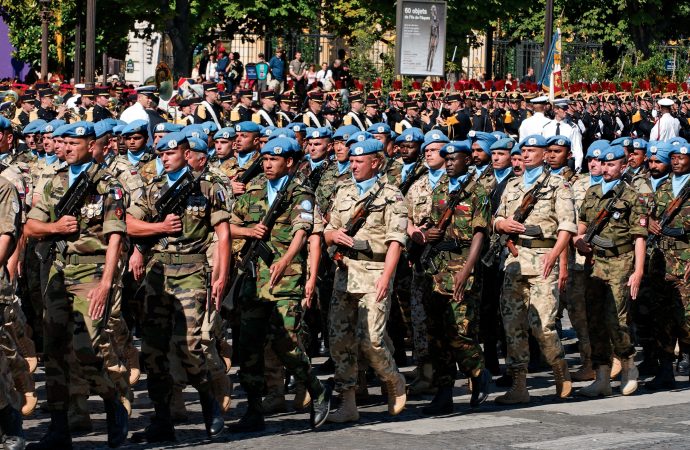In late May 2021, CIPS scholars hosted a virtual workshop on the topic of middle powers, liberal internationalism, and the changing geopolitical environment around UN peace operations. Workshop participants joined us from six different countries to present original research papers. These papers addressed a variety of questions about how changes in global order are likely to affect the politics of peacekeeping, with a primary focus on their implications for ‘middle powers’ like Canada. The four blogs in this symposium are based on those research papers and they explore the normative, institutional, and practical implications of these changes more deeply.
Read the Special Issue of the Journal of Intervention and Statebuilding that came from this workshop
In 2018, the UN Secretary-General launched the Action for Peacekeeping (A4P) initiative, which calls on member states, the Security Council, host countries, troop- and police-contributing countries, and other stakeholders to renew their commitment to UN peacekeeping. With more than 150 endorsements, the A4P Declaration of Shared Commitments has become a focal point for efforts to address challenges in contemporary peace operations. Echoing the 2015 High-level Independent Panel on Peace Operations (HIPPO), the A4P Declaration affirms the “primacy of politics;” it includes a pledge to advance political solutions to conflict and enhance the political impact of peacekeeping.
This focus on politics comes at a time when the challenges facing peace operations are increasingly bound up with political tensions among UN member states. Peacekeeping has never been apolitical; since its inception, it has been politically complex both within multilateral fora and within member states themselves. Historically, it has been a symbol both of international cooperation and of liberal values and liberal internationalism. UN peacekeeping must now contend with high-level disagreements about its form, purpose, and normative underpinnings, especially as bigger questions about the value of liberal internationalism arise. At the same time, UN member states are pushing for budget cuts. Material support and the utility of peacekeeping are both in question.
The CIPS workshop explored questions about the impact and viability of peacekeeping in this context, with discussion centering on issues such as protection of civilians; women, peace, and security; and children affected by armed conflict. Participants debated the apparent moves away from liberalism and liberal internationalism, shifts towards pragmatic peacekeeping, challenges for promotion of human rights, and the disagreement on normative priorities between UN member states. This blog symposium is an opportunity to showcase research and debates on these topics with contributions from four of our workshop participants.
Based on co-authored work with Benjamin Zyla, Katelyn Cassin’s blog offers a fresh look at peacekeeping beyond the norms of liberalism. Cassin provides three key lessons from the past 70 years of peacekeeping, offering suggestions for UN member states to design operations to be less directive and reflective of liberal norms, moving away from the imposition of statebuilding, and allowing for more legitimacy and control for local actors and more collaboration on the ground.
Kirsten van Houten’s blog examines the nexus between human rights defenders and local peacebuilding actors. She argues that the high-level architecture of peacekeeping and peacebuilding overlooks the intersection that exists at the local level, where human rights defenders and local peacebuilding actors are often one and the same. She offers key suggestions for avoiding the pitfalls of high-level multilateral architectures and drawing attention to this nexus of local action.
Tom Buitelaar also writes about human rights and the broad structure of peacekeeping. While many member states disagree on the value of linking the two, this link is institutionalized through specific human rights offices. He argues that the individuals running these offices as mission leaders are central for determining the varying success of the offices.
The CIPS workshop explored questions about the impact and viability of peacekeeping in this context, with discussion centering on issues such as protection of civilians; women, peace, and security; and children affected by armed conflict.
Finally, John Karlsrud highlights the contradictions between peacekeeping’s key principles and collaboration with more complex armed operations. He contextualizes this within broader geopolitical developments, demonstrating the challenges that this poses for the United Nations.
We hope that these blogs provide an interesting snapshot of some of the exciting research shared at CIPS. We are grateful to the Mobilizing Insights in Security and Development (MINDS) program within the Department of National Defence for providing a Targeted Engagement Grant in support of the workshop, to CIPS Director Rita Abrahamsen, and to graduate students Roya Shams and Jiadi Wu for their skilled research assistance.









